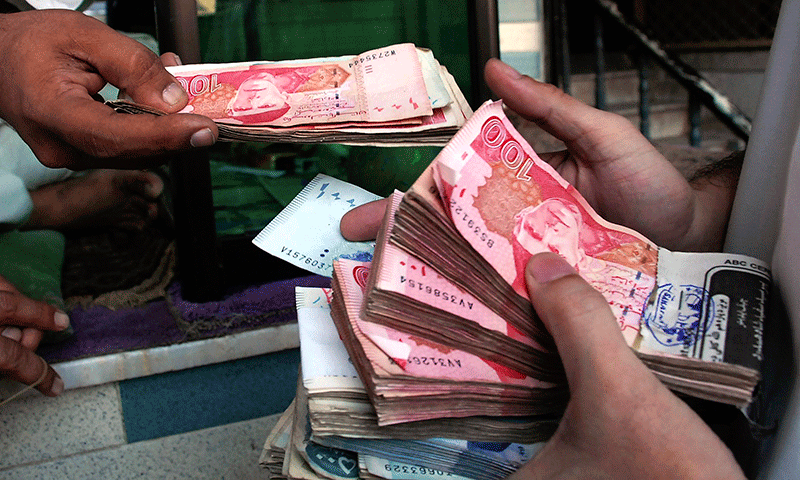
• In detailed ruling on reserved seats, senior puisne judge takes exception to two colleagues’ remarks in minority judgement
• Justice Shah grills ECP, says it should not have acted as primary complainant
• Judgement says court more concerned with electorate’s rights than a political party’s
• In separate note, Justice Afridi asks ECP to revisit notifications in light of verdict
• Justice Shah boycotts panel to form benches over ‘unfettered and arbitrary discretion’ vested in CJP
• Legal experts hope this isn’t another ‘Sajjad Ali Shah moment’
ISLAMABAD: A bitter spat between ‘brother judges’, which had been simmering for quite some time, came to a head on Monday as differences between them were reflected in a judgement issued by the top court — something many legal experts termed ‘unprecedented’.
In a 70-page verdict regarding the reserved seats, senior puisne judge Justice Mansoor Ali Shah responded to the observations made by Justice Aminuddin Khan and Justice Naeem Akhtar Afghan in their dissenting notes.
“We feel constrained to observe, with a heavy heart, that our two learned colleagues in the minority […] have made certain observations in their dissenting judgement of Aug 3, 2024, which do not behove judges of the Supreme Court of Pakistan, the highest court of the land,” regretted Justice Shah.
“We take no issue with their having and expressing the view that, in their understanding, our order dated 12 July 2024 is not in accordance with the Constitution, as members of a bench of this court, or any court, can legitimately differ on issues of fact and law […] However, the manner in which they have expressed their disagreement falls short of the courtesy and restraint required of judges of the superior courts,” Justice Shah said.
“What is more disquieting is that […] they appear to have gone beyond the parameters of propriety by warning the 39 plus 41 (80) returned candidates and urging the commission not to comply with the majority order […] Such observations undermine the integrity of the highest institution of justice in the country and seem to constitute an attempt to obstruct the process of the court and the administration of justice,” the judge lamented.
“The judges need not always see eye to eye and may ultimately disagree, but the possibility of disagreement does not absolve them from engaging in a free and frank discussion before rendering their final opinion,” Justice Shah observed.
“Egos may be bruised, tempers tempted, yet all must pursue the process with respect and civility,” he suggested.
In their dissenting verdict on the issue of reserved seats, both judges had held that the superstructure created by July 12 majority judgement did not come within the ambit of the jurisdiction vested in the Supreme Court, or in the Constitution.
Calls for restraint
“For the first time in Pakistan’s judicial history, minority judges had asked institutions not to implement the majority judgement, thus inviting chaos in the country,” commented a senior counsel on condition of anonymity.
The judges should show restraint instead of commenting against each other since their conduct adversely affects the prestige and dignity of the court, he regretted.
Former additional attorney general (AAG) Tariq Mehmood Khokhar was of the view that the ‘internecine strife’ in the top judges was not without precedent.
In Nov 1997, during the PML-N government, two parallel courts convened simultaneously in the Supreme Court building, in crude opposition to each other.
“Much ugliness followed, including the ruling PML-N thugs and goons storming the Sajjad Ali Shah court, without any intervention by the security personnel,” he recalled.
“It is happening again during another PML-N premiership,” Mr Khokhar said, expressing hope that this was not the beginning of a ‘Sajjad Ali Shah moment’.
For Advocate Taimur Malik, an expert in international law, the observations in the detailed judgement regarding two fellow judges were unprecedented, unusual and very significant. These observations highlight that the majority judges have strong reservations regarding the note authored by two judges and its adverse effect on the implementation of the full court’s majority judgement, he said.
The judgement penned by Justice Shah also underscored the majority of the judges did not take lightly any attempts to undermine the sanctity of judicial decisions, he said.
Justice Shah’s letter
Shortly after the judgement was released, Justice Shah wrote a three-page letter expressing his displeasure with recent changes to the bench-forming committee, in light of a recently-promulgated ordinance. He said that he could not participate in meetings of the three-judge committee, which had been reformed under the Supreme Court (Practice and Procedure) Ordinance 2024.
The Sept 21 letter of CJP Qazi Faez Isa to the court’s registrar seeking an explanation of how the Sept 14 clarification order by Justice Shah was uploaded on the top court’s website also showed hinted at infighting among ‘brother judges’.
Through Monday’s letter, Justice Shah suggested that until the constitutional validity of the amendments was determined by a full court, or judges of the apex court resolved to act upon the amendments in a full court meeting on the administrative side, or the earlier committee was restored, he would not attend the meeting. On Sept 20, moments after the federal government promulgated the ordinance, the CJP had changed the composition of the committee by substituting Justice Munib Akhtar with Justice Aminuddin Khan.
In his letter, Justice Shah observed that independence, transparency and collegiality required the CJP to raise an immediate alarm and concern on the promulgation of the ordinance in the light of court’s celebrated pronouncement in the 2024 Raja Amer case and to convene a full court meeting for deliberations on the matter, rather than hurriedly acquiescing to it and quietly reconstituting the existing committee without any lawful justification and reasons.
The Supreme Court had held in the Raja Amer case that Article 191 vested the initial and primary power to make rules for regulating its practice and procedure in the Supreme Court, he wrote.
“I am afraid, any proceedings taken or decisions made by the reconstituted committee will […] undermine the integrity of the highest institution of justice in the country as well as the public confidence in the decisions made by the benches constituted by it,” he feared.
The judge also appeared concerned over the amendment vesting unfettered and arbitrary discretion in the CJP to determine the composition of the committee. Further, the constitutional conditionality of the very act of promulgating the amending ordinance also requires a judicial determination as no urgency has been spelt out that necessitated its promulgation, he said, adding that not to mention the timing of the new ordinance in the midst of the current constitutional crises.
Justice Shah also pointed out that the legislation did not provide for necessary reconstitution of the existing committee and hence, the earlier committee could have continued even after the amendment.
But within hours of the promulgation of the ordinance, it was notified that the committee had been reconstituted and no reasons were given as to why the second senior-most judge, Justice Akhtar, was removed despite his availability.
Furthermore, no reasons were given why the next senior most judge (Justice Yahya Afridi) was ignored and instead, the fourth senior most judge was nominated as a member of the committee. Such unfortunate cherry-picking and undemocratic display of one-man show are precisely what the 2023 act tried to discourage, he added.
Published in Dawn, September 24th, 2024












































